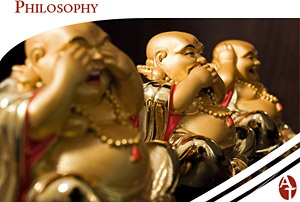Acupuncture for Depression: Scientific American
Kristen Sparrow • July 02, 2014


Scientific American takes on the topic of Acupuncture in discussing a research study about acupuncture for depression. In this particular article, they used electroacupuncture for 6 weeks and the effect was more rapid than with Prozac. If you click through to the discussion, they, of course, interview Edzard Ernst. I’m not sure where his animus comes from but Ernst has made his mission in life to discount the validity of acupuncture, it’s what he does. In the panel discussion they do not once mention animal studies, which are highly unlikely to be affected by placebo. I think the resistance is becoming more shrill, which is a sign that we are really getting somewhere. I had to laugh at this though,
“Colquhoun: There is a lot of money at stake for those who sell acupuncture—and a certain amount of fascination with New Age thinking. There are excellent controls such as retractable needles. Almost all experiments show no difference between real and sham acupuncture.”
Yes! So much money to be made with acupuncture! Unlike with Prozac whose developers did it for the benefit of mankind! What planet is this guy living on? Reminds of me of climate change deniers who say the climate scientists are in it for the money. Pot, kettle etc…
After six weeks, both groups showed a similar improvement in symptoms, and both treatments restored GDNF to a normal concentration. But the acupuncture began to work faster, reducing symptoms more dramatically at weeks two and four than the drug did. Among the patients who got better, a higher percentage of the acupuncture recipients showed “great improvement.”
The original article is here.
Sun H, Zhao H, Ma C, Bao F, Zhang J, Wang DH, Zhang YX, He W. Effects of electroacupuncture on depression and the production of glial cell line-derived neurotrophic factor compared with fluoxetine: a randomized controlled pilot study. J Altern Complement Med. 2013 Sep;19(9):733-9. doi: 10.1089/acm.2011.0637. Epub 2013 May 6. PMID: 23647408; PMCID: PMC3768227.

